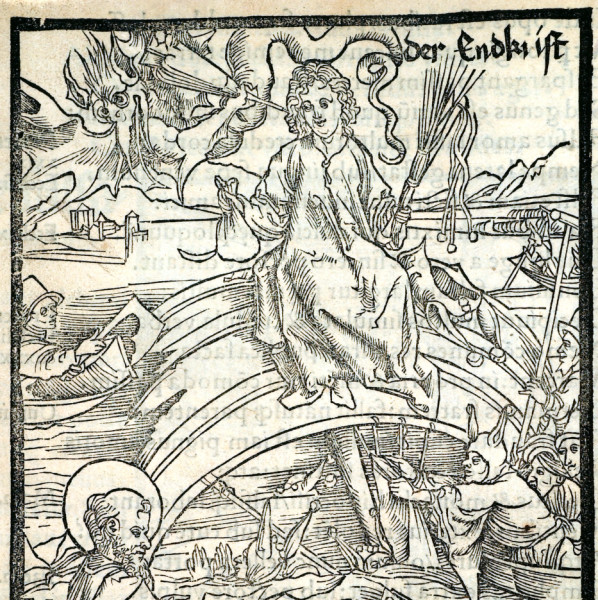"The Story of B" is a sequel to Daniel
Quinn's best selling and near-classical "Ishmael". Both books are
written in the form of novels, but the plot (which is very thin) is simply a
vehicle to get across the author's political and philosophical ideas. Thus,
Quinn's books belong to the same genre as James Redfield's "The Celestine
Prophecy" and (perhaps) Dan Brown's "The Da Vinci Code".
The main character of "The Story of B" is a Catholic priest working for the Laurentians. The Laurentians don't really exist, but they seem to be loosely based on the Jesuits. The priest, named Jared Osborne, infiltrates the inner circle of a strange character known simply as B, whom the Laurentians suspect of being the Anti-Christ. In one of several unexpected twists, B exposes Osborne but nevertheless agrees to take him on board as a student. Eventually, he turns Osborne into a disciple.
Or so he thinks...
I won't disclose more of the plot, but, frankly, it's very weak. Quinn is a bad writer of fiction. The real point of the book is the political and philosophical message, which expands on the ideas found in "Ishmael". Just like Ishmael the talking gorilla, B has a Green message critical of modern civilization, and indeed civilization in general. He also attacks the established world religions, including Christianity, in favour of animism or pantheism. If read carefully, the message of B is actually quite disturbing. It has Malthusian, Social Darwinist and fascistic traits. His "animism" is really a form of materialism, a kind of spiritualized Neo-Darwinism.
"The Story of B" contains many pseudo-erudite claims that turns out to be oversimplified or plain wrong when researched more closely. Agriculture wasn't originally about "power", since agricultural societies were peaceful for millennia. Even peaceful high cultures have existed: the Indus Valley Civilization, the Norte Chico culture, and (arguably) Minoan Crete. Pastoralists, on the other hand, were violent and probably destroyed some of the peaceful Neolithic cultures in Europe. Yet, Quinn paints pastoralists as the good guys, and agriculturalists as the bad guys. He also has major problems with the fact that Palaeolithic hunters exterminated the large land mammals of Eurasia, Australia and the Americas. This disproves his theory that tribal peoples always lived in harmony with nature. (Perhaps humans are flawed and hence in need a saviour, after all?) And what about modern tribal peoples who exterminate their own game animals when given access to firearms?
The most annoying part of the book is Quinn's insistence that humans are like mice, automatically breeding out of control when there is enough food. He talks about "new visions", but never calls for a new vision which combines birth control with a stable food production way above starvation level, a situation he apparently considers impossible (or undesirable?). Instead, he calls for "food control", i.e. artificially induced starvation in the Third World. I wonder whether Daniel Quinn's fans understand the implications of the message? The Laurentians are right. Quinn a.k.a. B is indeed the Anti-Christ!
Still, "The Story of B" cannot be lightly dismissed either. Starvation and poverty can be abolished, but it would probably take a world government to make sure that the resources are evenly distributed across the globe. It's difficult to see how such a government could be controlled democratically (or created at all). But even if it could be, we are rapidly approaching a situation where re-distribution of the available resources won't solve the ecological crisis. The "available resources" are diminishing, and it's difficult to see how six to eight billion people can be fed, clothed and housed at reasonable standards short of even more environmental destruction. If humanity doesn't start practising birth control, we will soon be subject to "food control", whether we like it or not.
In that sense, Quinn a.k.a. B a.k.a. Ishmael might still get the last word. It won't be pretty. "The Story of B" could be seen as the Anti-Christ's challenge to the primate known as Homo sapiens. Are we men or humans enough to take it up?

No comments:
Post a Comment